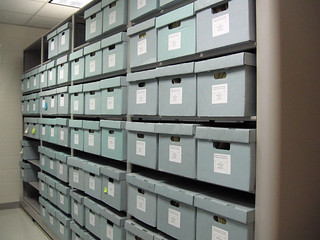
Over the past 3 weeks I have been in Portugal helping my grandparents with daily life during a trying series of complications that often come with old age. During that time Ive strangely found myself watching television, specifically programming from the more intellectual Portuguese state television RTP2. While washing dishes one night I heard a familiar Brazilian accent and looked over at what was a clearly older and slightly weaker Lula da Silva. The former 2 term Brazilian president was being interviewed about his life, his presidency, his country, and the world in general. He spoke about how his thinking has been impacted by his successful battle against throat cancer. He spoke about injustice and inequality in different parts of the world, including in Brazil. And most impressive for me, he spoke with a clarity and wisdom you’re rarely allowed to see in the world of international politics.
This got me to thinking about the wisdom and freedom to speak that comes with no longer being the leader of a nation. Every now and then, a president or a prime minister steps down, and suddenly it is like a weight has been lifted and a light shines upon them. In the United States, Jimmy Carter has long been the voice of unwavering criticism and honesty about the state of the world and the shortcomings of is own presidency. Nor he or Lula are the first of their kind, but listening to someone who led such a large and dynamic nation during a period of such immense change, in addition to having survived the near loss of his voice (and life), is quite enlightening.
Critics will say – he (and all former leaders) are still and always will be politicians. Lula himself says this. But the office of the executive seems so often to paralyze and silence the true voice of the person elected to that position. Perhaps you can’t speak truth to power when you are the power. But if anyone in this world were looking for useful information based on unique and qualified experience, look for the former presidents who still care about the world and have finally found the nerve to tell it like it is. They can help advise both leaders and citizens of this world, to learn from their mistakes, and look critically at how our world is being run.
Note: I will subtitle the interview and post it in the coming week as a video entry.

 It is a formula that we decided decades ago makes sense and should therefore work. It is a recipe that for many people in the past decades, has worked to provide a decent life and what people often refer to as security as they look to the future. – You go to school, you do your training, and when you’re finished there will be a job for you somewhere, and it will be a job you want.
It is a formula that we decided decades ago makes sense and should therefore work. It is a recipe that for many people in the past decades, has worked to provide a decent life and what people often refer to as security as they look to the future. – You go to school, you do your training, and when you’re finished there will be a job for you somewhere, and it will be a job you want. I’m probably a very annoying person to deal with on a daily basis, especially when I’m doing my typical “big picture” speeches and appreciating the life I’ve carved out for myself knowing full well how many do not get to enjoy, travel, try… as I have. I’m not sure what turn of events, what influential person or piece of media that I ever heard/read/watched, that made me someone that continuously comes back to one conclusion: despite some slim odds and all the factors that could have played out differently, I have arrived (as have so many of us) at this point in my life doing things I love to do, having people in my life (near and far) that I’m honored to know, and in reasonably good shape as far as the essentials of life go. Although much of the world seems so busy and eager to move past these types of observations, just as quickly as someone might be about to click away from this text, I think the ability to see it – especially at difficult moments- is something that needs nurturing.
I’m probably a very annoying person to deal with on a daily basis, especially when I’m doing my typical “big picture” speeches and appreciating the life I’ve carved out for myself knowing full well how many do not get to enjoy, travel, try… as I have. I’m not sure what turn of events, what influential person or piece of media that I ever heard/read/watched, that made me someone that continuously comes back to one conclusion: despite some slim odds and all the factors that could have played out differently, I have arrived (as have so many of us) at this point in my life doing things I love to do, having people in my life (near and far) that I’m honored to know, and in reasonably good shape as far as the essentials of life go. Although much of the world seems so busy and eager to move past these types of observations, just as quickly as someone might be about to click away from this text, I think the ability to see it – especially at difficult moments- is something that needs nurturing. Last month there was a
Last month there was a 